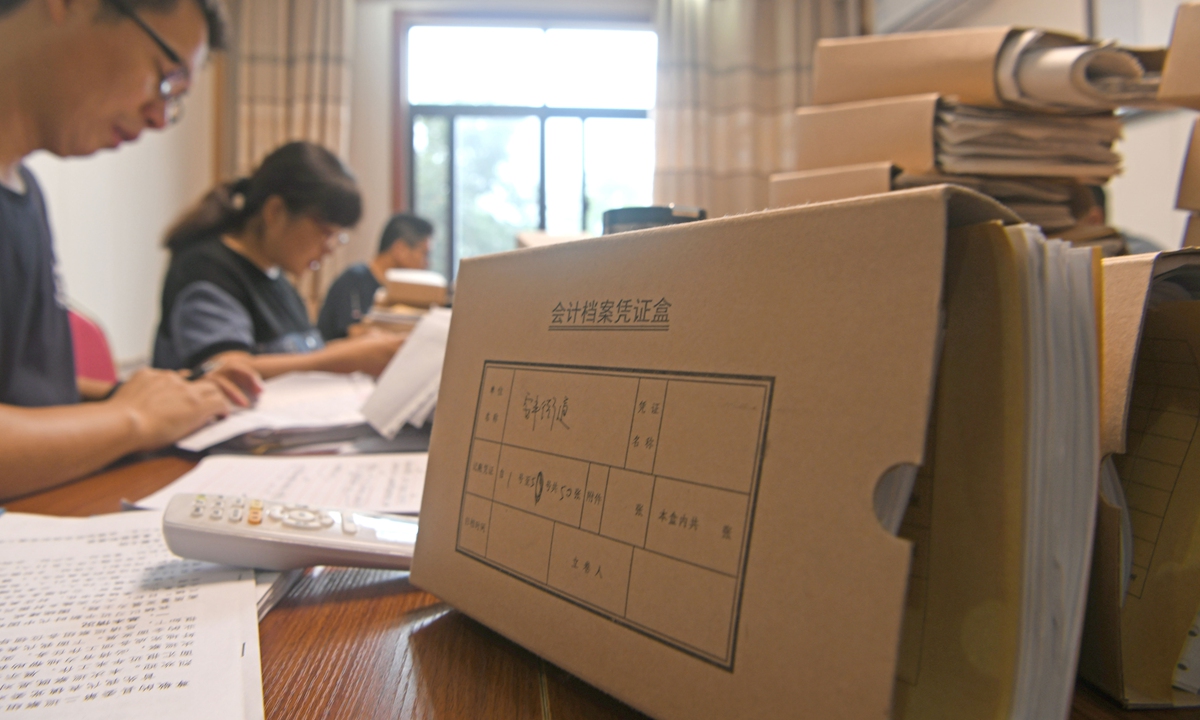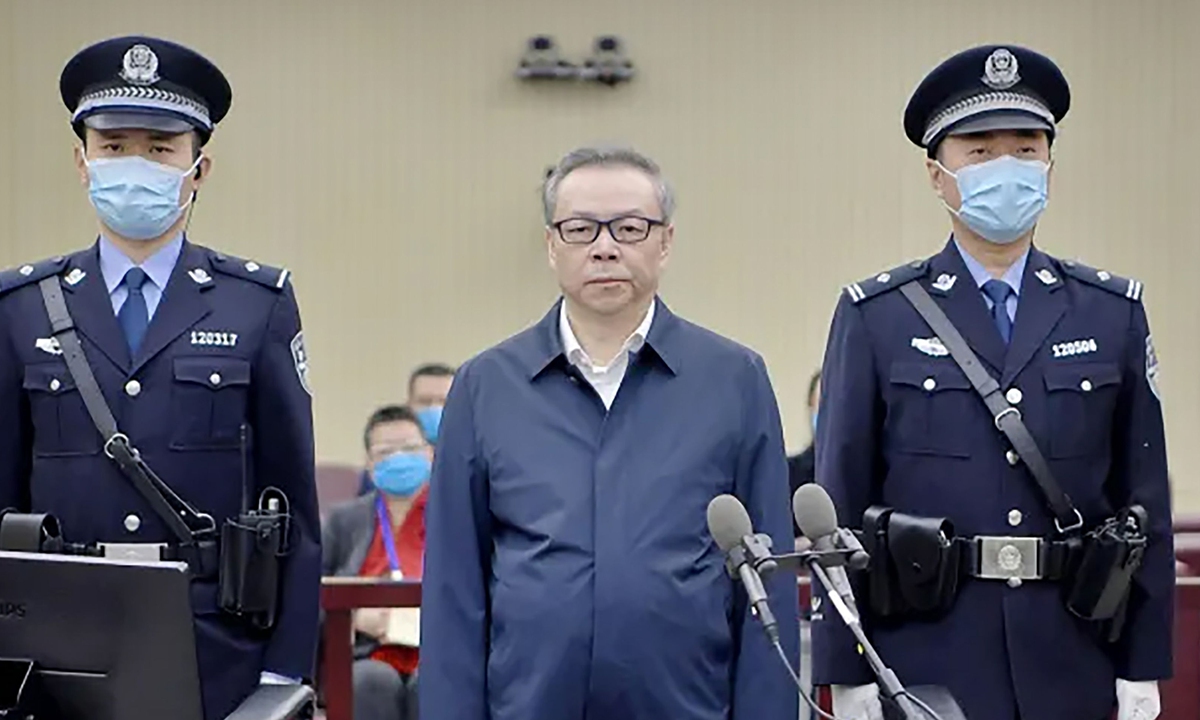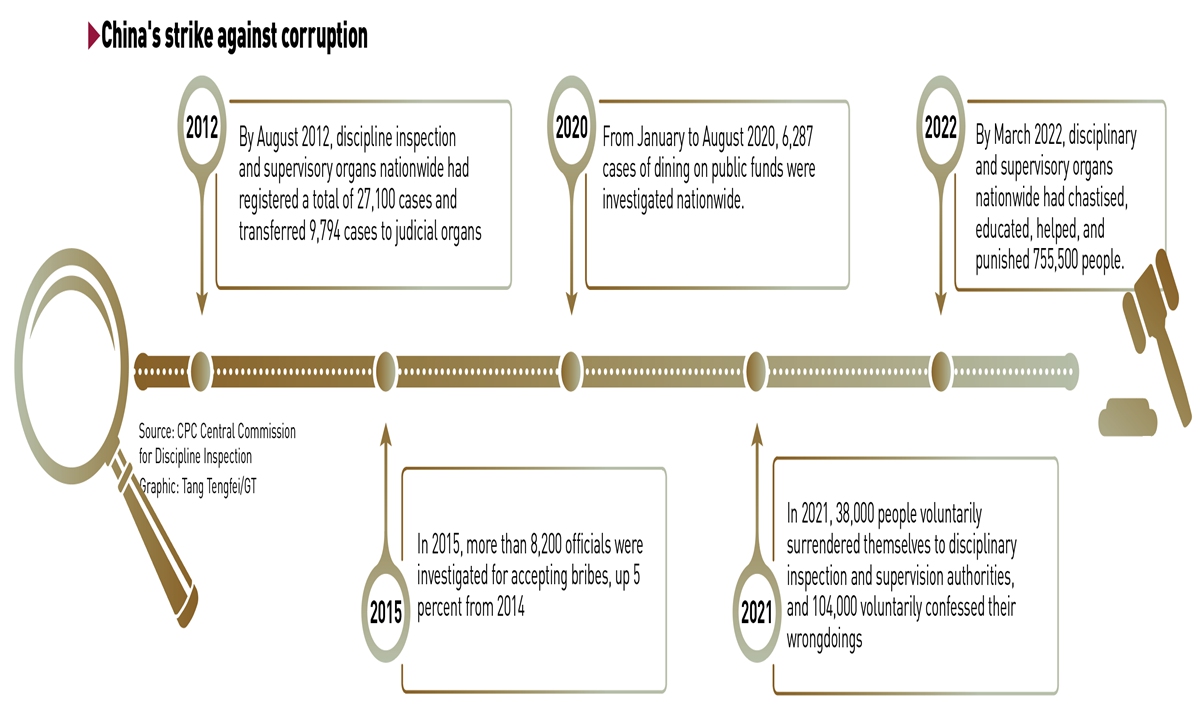
Photo: VCG
Editor's Note:Looking back over the last decade, China has witnessed tremendous changes, which could not have been achieved without the hard work of its people.
There are many ways to record the last decade, but the story that, at times, leaves a mark on each person is surely the most vivid. To welcome the 20th National Congress of the Communist Party of China (CPC), the Global Times has launched a series of stories to pay tribute to people from all walks of life who have contributed their wisdom and energy to the realization of the Chinese Dream.
In this installment, a man who has been working on the anti-corruption frontline shares the changes and achievements he has witnessed in the last 10 years of China's anti-corruption work.
Before the Chinese anti-graft TV drama In the Name of the People became popular in the country, Xiao Li (pseudonym) had already witnessed the complexity of anti-corruption efforts. Born in a remote village, Xiao Li chose this job just for a "stable" life at the onset. "For people in our small county, it is good enough to have a stable job. But later on, I found that the job was not that stable," Xiao joked.
"It may sound easy to say that the anti-corruption work is to take out the 'tigers' - powerful but corrupt bureaucrats - but it requires a long time and great energy reserves," said Xiao, the Party secretary of a county-level anti-corruption bureau in northern China.
"In anti-corruption work, discipline is the top requirement. As long as there is a violation of the rules and discipline, we will investigate immediately," said Xiao. He introduced that during their investigation, organizational and minor punishments accounted for 90 percent, medium and heavy punishments accounted for less, and duty crimes came in last.

Inspectors scrutinize village account books to combat economic corruption in Shouxian, Anhui Province on July 6, 2022. Photo: VCG
Young bloodIn 2017, In the Name of the People, a TV series adapted from a novel by the same name, translated anti-corruption ideas to the silver screen. It outperformed all other types of TV series aired in 2017 and was hotly discussed by audiences across the country, becoming a TV phenomenon.
Unlike previous anti-corruption dramas, where audiences mainly consisted of a middle-age base and senior citizens, this TV series attracted the attention of many Gen-Zers.
"It's fair to say that this show has promoted transparency in our work," Xiao said. "More and more young people are engaged in anti-corruption work at the grassroots level, accounting for more than 50 percent of efforts," said him.
Since the 18th National Congress of the CPC, the whole country has been fighting corruption. Statistics show that by the end of April this year, discipline inspection and supervisory organs nationwide had registered 4.39 million cases, and 640,000 people were handed administrative punishments, according to data from CPC's top disciplinary agency.
Our daily anti-corruption work may not be as "exciting" and "thrilling" as on TV, but it does have all kinds of incidents. "In my anti-graft work, the most impressive thing is that when I first joined the team, I found that a village accountant was corrupt. However, his son refused to believe that his father was an embezzler and swore that he would gain accounting skills to redress the case. Later, I personally helped him to take related classes, and he was convinced by the truth," Xiao told the Global Times.

Lai Xiaomin (C), former chairman of China Huarong Asset Management Co., stands trial on August 11, 2020. He was sentenced to death for taking over 1.78 billion yuan (about $276?million). Photo: VCG
Courage and resolveThe infamous Tangshan restaurant attacks which occurred at a barbecue restaurant in June this year, when four women were assaulted and attacked by a group of men, prompted widespread condemnation, putting pressure on the continued strike against corruption and crimes on local authorities in other regions.
"Since then, we have strengthened our anti-corruption efforts and set up a special team to respond to the public's complaints," Xiao said.
In the first quarter of 2022, records showed that disciplinary and supervisory organs across the country received 850,000 complaints, handled 338,000 clues, conducted 66,000 interviews and inquiries, filed 143,000 cases, and disciplined 112,000 people, according to data from CPC's top disciplinary agency.
As a matter of fact, most of our work is to solve and understand the petitions or letters of complaints. Over the last decade, the number and incidences of corruption have seen a downward trend, Xiao said.
"Ten years ago, we needed a lot of approval procedures to investigate or arrest suspects, and sometimes we would face some form of obstruction from suspects' 'protective umbrellas'," Xiao recalled. "The situation has changed as anti-corruption and clean construction is now part of the overall layout of the Party, allowing my colleagues and I to do our job better because there is more operational space. Whenever we receive letters of complaints, we handle them carefully, and we will make sure we assign the right people to investigate the cases. And the whole process is open and transparent."
Another challenge is to address the issue of dining on public funds.
On September 27, 2021, the CPC Central Commission for Discipline Inspection announced that in August 2020, 574 cases of dining on public funds were investigated. From January to August 2020, the country investigated 6,287 cases of dining on public funds, accounting for 19.2 percent of the total number of cases of indulgence.
"In a small town like ours, it is actually more common to have such a problem," Xiao mentioned. Three years ago, Xiao was involved in a task of investigating the dining on public funds of a colleague he had known for years.
"He usually seemed to be very frugal, and didn't talk much. He was reported by his family members due to certain marital issues. We were shocked when we saw his consumption records and invoice information. Each time he ate or drank, the bill would be well over 1,000 yuan."
Ten years ago, voluntary whistleblowing was rare, but with the improvement of anti-corruption education, cases independently reported are increasing.

Graphic: Tang Tengfei/GT
In 2021, 38,000 people voluntarily surrendered to disciplinary authorities, and 104,000 voluntarily came clean.
"In the past, my work content had certain limitations. For example, we usually just followed the cases and clues given by our superiors," Xiao said. "Ten years later, our approval process has been optimized. Special cases can directly go to a special team, which saves time and prevents potential lawbreakers to conceal their crimes."
I think with the increase of anti-corruption efforts, especially the popularization of anti-corruption education, there will be a new outlook for anti-corruption work in the future, Xiao noted. Corrupt suspects will have more ways to hide their deeds, and thus we will need to scrutinize them more carefully.
He also said that the great public concern generated around corruption in recent years has prompted greater transparency and efficiency in his work. "People's trust is both the motivation and privilege for me to do this job well." With the development of new media and the change in public opinion, I believe anti-corruption work will continue to carry on in the next 10 years, he said.
Since the 18th CPC National Congress in 2012, the CPC Central Committee has improved Party conduct, upheld integrity and combated corruption with unprecedented courage and resolve.
The Chinese people and the world have witnessed the determination and efforts of the CPC to fight corruption in the past 10 years, and the achievements are remarkable with the political environment of China overwhelmingly improved. The CPC remains calm and vigilant as the anti-corruption campaign has encountered new challenges with the development of society and technology, observers said.
The CPC top disciplinary agency pledged to maintain a strong and persistent crackdown on corruption in a communiqué released in January this year, and the document also said the Party will actively handle "the new challenges and new situations" of the anti-corruption campaign, including strengthening investigations and punishment behind the "disorderly expansion of capital" and monopoly of some online platforms, vowing to cut off the collusion between capital and power.







